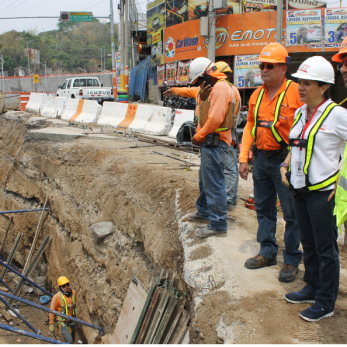Our new infrastructure transparency story highlights the work of our first Latin American member, Guatemala. They’ve made vital changes in infrastructure transparency, accountability and participation since their membership in 2010, despite difficult political circumstances.
CoST Guatemala’s work has led to transparency reforms through new laws and mandates requiring the publication of infrastructure data, including in line with the CoST Infrastructure Data Standard. The member has also encouraged open government through training; developing an Open Government Plan and working with government departments. Change has also been driven through independent review of infrastructure data (assurance) including transport, education, and health sectors, which were used to advocate for further changes in budgeting and bidding processes. CoST Guatemala has brought different stakeholders together, including university students; journalists; community leaders; the British Embassy and USAID and more.
Key highlights of this story include:
- CoST Guatemala influencing the establishment of a legal mandate that extended infrastructure data publication requirements based on the CoST Infrastructure Data Standard (CoST IDS) supporting data to be published on 40,736 infrastructure projects from August 2014 to March 2024, including in transport, education, and health sectors.
- Transparency has increased with the average amount of data published on an infrastructure project increasing from 10-13% of the CoST IDS in 2010 to 60–70% in 2023.
- CoST Guatemala training 750 university, media and civil society representatives in 2020 alone
